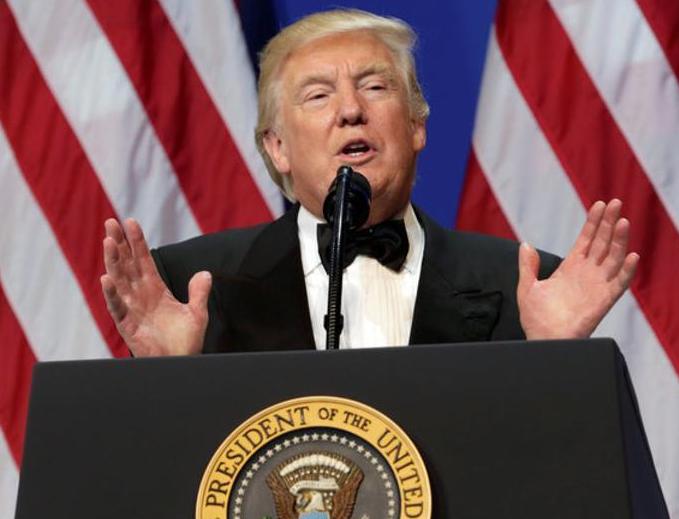Investors hope the split between Republicans and Democrats controlling the U.S. Congress will open up opportunities to pick new winners and losers because some government policies will be harder to predict.
Correlations between stocks and sectors were high in the run-up to Tuesday’s congressional elections, meaning investors have been either dumping or buying all kinds of unrelated stocks at once.
Some funds have been damaged in what is a tough market to be a stock picker.
Now, with voters giving Democrats control of the House of Representatives and Republicans retaining their Senate majority, fund managers can take opposite sides of various policy bets.
These might include whether financials will benefit from deregulation even with stricter House oversight, if healthcare will face more policy proposals aimed at restraining costs.
Probably, military spending will get caught in a tussle between the two parties.
“If we are in a generally volatile environment but one that’s not overly negative, in other words a choppy market as opposed to a bear market,
”I think that’s an environment where correlations can fall,” said Evan Brown, head of macro asset allocation strategy at UBS AG’s asset management business.
“There’s potential for sector out-performance and under-performance as a result of the election.”
President Donald Trump told reporters on Wednesday that he was willing to work with Democrats on some policy priorities.
Issues that could gather bipartisan support include a package to improve infrastructure, protections against prescription drug price increases and a push to rebalance trade with China.
Stocks rallied on Wednesday, but one Cboe S&P 500 Implied Correlation Index .ICJ was down more than 9 percent and another .JCJ was flat.
Correlations between stocks and sectors bottomed in September but spiked in October.
Even more damaging: bonds and stocks moved in tandem, with both down for the month for only the 12th time since the March 2009 dawn of the U.S. bull market.
The October sell-off was driven by macroeconomic concerns tied to the U.S. Federal Reserve, tariffs and inflation and hit active fund managers badly.
U.S. large-cap active mutual fund managers posted their worst results versus their benchmark since September 2011, according to Bank of America Corp data.
More conflict in policy decisions could mean those factors drive stocks more than macroeconomic developments.
For instance, investors are bidding up sand and gravel suppliers Martin Marietta Materials Inc (MLM.N) and Vulcan Materials Co (VMC.N) on the hope that bipartisan support for infrastructure spending can move forward.
But ValueWorks LLC founder Charles Lemonides said he is trimming his stake in the stocks as they begin to reflect too much optimism.
“We think there is a lot of opportunity for people who are willing to do the hard work of investing, which is find individual investments that make sense,” said Lemonides.
Macro forces might be less relevant than assumed in the short run.
The meeting expected at the end of the month between Trump and Chinese President Xi Jinping could yield hopeful words but no firm commitments to resolve trade issues.
The U.S. Federal Reserve could raise rates as expected in December while striking a tone that keeps markets calm. Both concerns – trade war and monetary policy tightening – may end up being left until 2019.
So long as markets focus on more parochial issues instead of trade and monetary policy the implications for stocks could be positive going into next year, investors said.
Low correlations between stocks typically also mean lower volatility for the market overall. It was such a benign scenario that helped stocks weather the uncertainty of a new Trump administration in 2017.
Of course headlines on trade, monetary policy or an unexpected macro issue could upset the rosy outlook, keeping correlations high. Global earnings and economic growth could peak.
Policymakers, even those in the same party, could be so at odds that they make no policy changes.
Republicans who have controlled the White House and Congress since January 2017 surprised investors by failing to replace the Affordable Care Act even though it was a campaign promise.
That makes odds making hard now on a range of issues, from repealing a medical device tax to passing a budget or loosening regulations on banks.
Each event could matter at the sector level, but are not likely to determine the course of the market overall. U.S. tariffs in place will start to bite companies and industries, adding new relevance to stock and sector picks.
Aggressive monetary policy response to the 2007-2009 global financial crisis is wearing off.
This is prompting differences between countries and allowing more defensive shares to gain in the United States, where they had once been eclipsed by technology names.
Liz Ann Sonders, chief investment strategist for Charles Schwab & Co Inc, said a market driven a broader range of stocks could help more people stay invested.
“Diversification has been a hard sell.”(Reuters/NAN)

